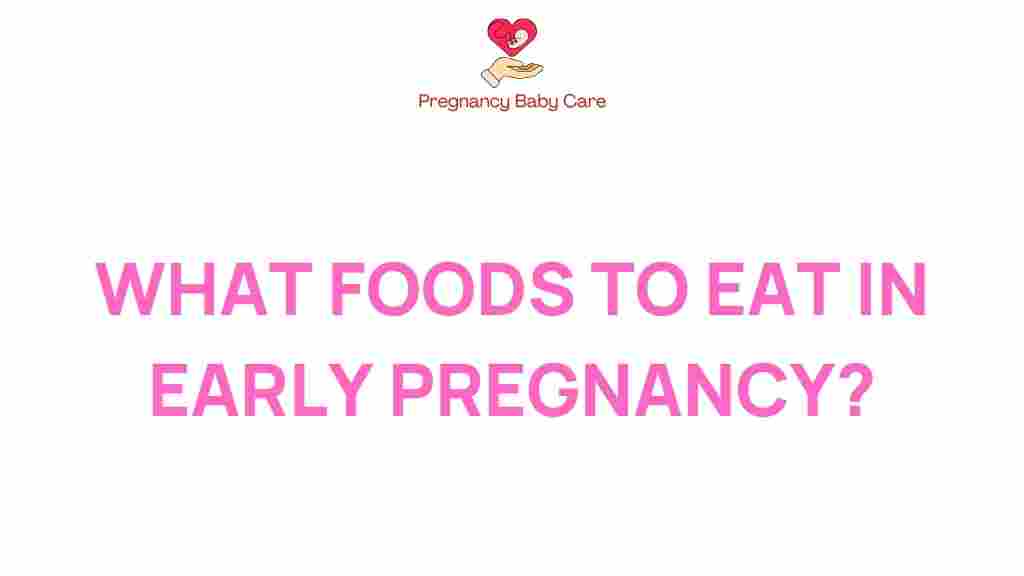Nourishing Beginnings: Essential Foods for Early Pregnancy
Early pregnancy is a crucial time when your body undergoes significant changes to support the developing fetus. Proper nutrition during this period is essential for both maternal health and fetal development. Making informed food choices and adopting a balanced diet can set the foundation for a healthy pregnancy. In this article, we will explore the importance of nutrition in early pregnancy, the best food options, and how to ensure you’re getting the right prenatal vitamins for optimal health.
Understanding Early Pregnancy Nutrition
Nutrition in early pregnancy is not just about eating for two; it’s about eating smart. A well-rounded pregnancy diet is vital for ensuring that both the mother and the developing baby receive the necessary nutrients. This stage is critical for fetal growth and development, and the right food choices can have a lasting impact on maternal health and fetal development.
The Importance of a Balanced Diet
A balanced diet during early pregnancy includes a variety of food groups that provide essential vitamins and minerals. Here are the key components of a healthy pregnancy diet:
- Fruits and Vegetables: Rich in vitamins, minerals, and fiber, fruits and vegetables should form a significant part of your diet.
- Whole Grains: Foods like brown rice, oatmeal, and whole grain bread provide energy and are rich in nutrients.
- Lean Proteins: Sources such as chicken, fish, beans, and legumes are essential for cell growth and repair.
- Dairy Products: Offer calcium and vitamin D, both crucial for the development of the baby’s bones and teeth.
Essential Nutrients for Early Pregnancy
During early pregnancy, certain nutrients become particularly important. These include:
- Folic Acid: Essential for preventing neural tube defects, folic acid should be included in the diet through leafy greens, legumes, and fortified cereals.
- Iron: Important for increasing blood volume, iron-rich foods such as spinach, red meat, and lentils are vital.
- Calcium: Needed for the development of the baby’s bones and teeth, dairy products and fortified plant-based milks are excellent sources.
- Omega-3 Fatty Acids: Important for fetal brain development, sources include fish like salmon and flaxseeds.
Food Choices to Incorporate
Here are some specific food choices that can enhance your nutrition during early pregnancy:
- Leafy Greens: Spinach, kale, and Swiss chard are excellent sources of vitamins A, C, and K, as well as iron and folate.
- Berries: High in antioxidants, berries like blueberries and strawberries are great snacks and can be added to smoothies.
- Nuts and Seeds: Almonds and chia seeds provide healthy fats and protein, making them perfect for snacking.
- Quinoa: A complete protein that is gluten-free, quinoa is an excellent base for salads or as a side dish.
- Greek Yogurt: Packed with protein and probiotics, it supports digestive health and provides calcium.
Incorporating Prenatal Vitamins
While a balanced diet is key, prenatal vitamins play an essential role in filling any nutritional gaps. These vitamins are specifically formulated to support maternal health and fetal development. Key components often include:
- Folic Acid: 400-800 mcg daily to support neural tube development.
- Iron: Helps prevent anemia, especially as blood volume increases.
- Calcium and Vitamin D: Important for bone health.
- DHA: An omega-3 fatty acid that supports brain development.
Consult with your healthcare provider to determine the best prenatal vitamins for your needs.
Creating Balanced Meals
To ensure you’re eating healthily, try to create balanced meals using the following guidelines:
- Include a Protein Source: Aim for lean meats, beans, or tofu.
- Add Whole Grains: Choose brown rice, whole wheat bread, or quinoa.
- Incorporate Healthy Fats: Use olive oil, avocados, or nuts.
- Load Up on Fruits and Vegetables: Fill half your plate with a colorful variety.
Sample Meal Ideas for Early Pregnancy
Here are some meal ideas to inspire your pregnancy diet:
- Breakfast: Greek yogurt topped with fresh berries and a sprinkle of chia seeds.
- Lunch: Quinoa salad with chickpeas, spinach, cherry tomatoes, and a lemon-tahini dressing.
- Dinner: Grilled salmon with steamed broccoli and brown rice.
- Snacks: Sliced apples with almond butter or a handful of mixed nuts.
Troubleshooting Common Nutrition Issues
During early pregnancy, some women may face challenges in maintaining their nutrition. Here are a few common issues and tips to overcome them:
- Nausea: If you experience morning sickness, try eating small, frequent meals. Ginger tea or lemon water may also help.
- Food Aversions: If certain foods make you feel nauseous, focus on what you can tolerate. Smoothies can be a great way to pack in nutrients.
- Cramps and Constipation: Ensure you’re getting enough fiber from fruits, vegetables, and whole grains. Stay hydrated to promote healthy digestion.
Resources for Healthier Choices
For additional guidance on healthy eating during pregnancy, consider visiting reliable health websites or consulting a nutritionist. Resources like the American Pregnancy Association provide valuable information on diet and nutrition during this important time.
Conclusion
In conclusion, proper nutrition during early pregnancy plays a vital role in both maternal health and fetal development. By focusing on balanced meals, making informed food choices, and incorporating prenatal vitamins, you can ensure that you and your baby receive the essential nutrients needed for a healthy pregnancy. Remember, early pregnancy is a time for nurturing beginnings, and your dietary choices can significantly impact the journey ahead. For personalized advice, always consult with your healthcare provider or a registered dietitian.
This article is in the category Pregnancy and created by PregnancyBabyCare Team
